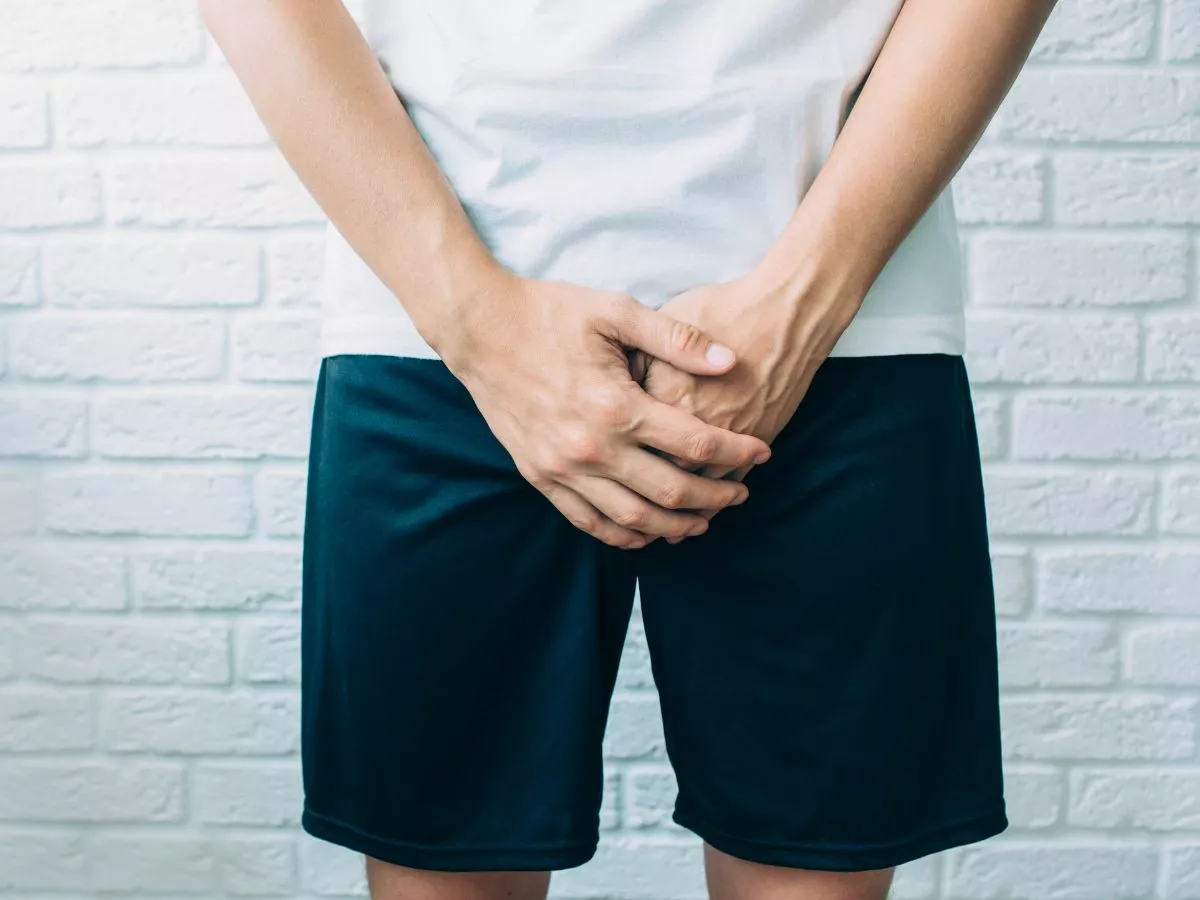Testosterone Replacement Therapy (TRT) has gained attention as a transformative treatment for individuals suffering from low libido and other symptoms of low testosterone (Low-T). This blog delves into the science, benefits, and considerations surrounding TRT while optimizing for key TRT-related search terms. Whether you're new to the concept or considering TRT for your health, this comprehensive guide is for you.
Understanding Low Testosterone and Its Impact on Libido
Testosterone is the primary male sex hormone, vital for physical development, muscle mass, energy levels, and sexual health. Low testosterone levels can result in low libido, fatigue, weight gain, and psychological challenges like depression or anxiety. These symptoms, often associated with aging, can manifest in men as early as their 30s and worsen over time.
Factors contributing to Low-T include:
- Aging (natural decline of testosterone by 1-2% annually post-30)
- Medical conditions like hypogonadism
- Stress and lifestyle factors, including poor diet and lack of exercise
How TRT Therapy Works
TRT involves the administration of synthetic testosterone through injections, gels, patches, or other methods to restore hormonal balance. It directly addresses symptoms of Low-T, including improved sexual desire, energy levels, and overall vitality.
Common forms of TRT include:
- Testosterone Cypionate and Enanthate: Popular esters for injection, offering sustained testosterone release.
- Transdermal Gels: Convenient application but require daily use.
- Testosterone Undecanoate: Approved for specific conditions and offers an oral alternative in some cases.
Benefits of Testosterone Replacement Therapy
Men undergoing TRT often report:
- Improved Libido: A revitalized sex drive and better performance.
- Enhanced Energy and Mood: Reduced fatigue and improved mental clarity.
- Better Physical Health: Increased muscle mass, reduced fat, and improved bone density
- Psychological Well-being: Alleviation of mood swings, anxiety, and depression.
TRT also offers broader health benefits, such as mitigating risks of cardiovascular disease and type-2 diabetes, which are linked to Low-T.
 |
||
Get Started at $1Take our online test and check if you are eligible for our hormone therapy. This allows our medical team to analyse your blood test and confirm if you’ve qualified for treatment. |
Is TRT Safe?
Extensive research indicates that TRT is generally safe when monitored correctly. Side effects like acne, water retention, or increased red blood cell count are possible but manageable with regular medical oversight. Quarterly check-ups ensure safety and efficacy, allowing for adjustments based on individual needs.
The Link Between TRT and Libido
Libido is one of the most immediate areas of improvement with TRT. Low-T disrupts hormonal pathways essential for sexual function. By replenishing testosterone levels, TRT helps:
- Enhance sexual responsiveness
- Restore erection quality
- Increase overall satisfaction in intimate relationships.
Effects on libido, sexual desire, sexual thoughts and fantasies and satisfaction with sexual life manifest themselves rather rapidly: after 3 weeks (68) or 30 days (14). Some studies have measured these effects only after 3 months (31).
Testosterone isn't the only fuel for a man's sex drive and performance. But low testosterone can reduce your ability to have satisfying sex. Lack of sex drive and erectile dysfunction are sexual problems that can result from low testosterone. If low testosterone is the cause, treating it can help.
Testosterone and the Causes of Low Libido
Researchers haven't unraveled the mystery of just how testosterone increases libido. It's normal for men's sex drive to slowly decline from its peak in their teens and 20s, but libido varies widely between men. What one man might consider a low sex drive, another might not. Also, sex drive changes within each man over time and is affected by stress, sleep, and opportunities for sex. For these reasons, defining a "normal" sex drive is next to impossible. Usually, the men themselves identify a lack of sex drive as a problem. Other times, their partner may consider it to be an issue.
Low testosterone symptoms don't always include feeling like you have no sex drive. Some men maintain sexual desire at relatively low testosterone levels. For other men, libido may lag even with normal testosterone levels. Low testosterone is one of the possible causes of low libido, however. If testosterone is lowered far enough, virtually all men will experience some decline in sex drive.
In a large study of men in Massachusetts, about 11% overall said they had a lack of sex drive. The researchers then tested all the men's testosterone levels. About 28% of men with low testosterone had low libido. These men were relatively young, with an average age of 47; older men might have worse sexual symptoms.
Low testosterone is only one of the causes of low libido. Stress, sleep deprivation, depression, and chronic medical illnesses can also sap a man's sex drive.
Who Should Consider TRT?
Men experiencing symptoms of Low-T, such as low libido, decreased energy, or mood disturbances, should consider TRT. A blood test is the first step to determining testosterone levels. Comprehensive assessments, including medical history reviews, help confirm if TRT is the right option.
The Long-Term Outlook on TRT
TRT is often a lifelong commitment, as it addresses the symptoms rather than the root cause of Low-T. Discontinuing therapy may lead to a return of previous symptoms, though adjunct treatments like HCG or Clomid can aid in hormonal recovery when needed.
Suggested
At the same time, low testosterone is a frequent accomplice to atherosclerosis in creating erectile dysfunction. In studies, as many as one in three men mentioning ED to their doctor have low testosterone. Experts believe that in men with other factors causing erectile dysfunction, low testosterone can strongly contribute, making a difficult situation even worse.
Strengthening the connection, low testosterone is linked in some way with many of the conditions that lead to erectile dysfunction:
- Metabolic syndrome
- Obesity
- Endothelial dysfunction
- Diabetes
Although low testosterone isn't known to cause them, the associations between other medical conditions and low testosterone can be significant.
Testosterone therapy improves sex drive and satisfaction with sex in many men. However, the long-term risks and benefits of testosterone replacement are unknown. Research trials on testosterone replacement in men are ongoing, although results are years away.
Conclusion
Testosterone Replacement Therapy is a promising solution for those grappling with low libido and other Low-T symptoms. By restoring hormonal balance, TRT offers a path to improved quality of life, vitality, and well-being. If you suspect Low-T, consult with a healthcare provider to explore TRT as a tailored, medically-supervised treatment option.
FAQs
What Are the Common Symptoms of Low Testosterone?
Low testosterone (Low-T) can manifest in several ways, including reduced libido, fatigue, weight gain, muscle loss, mood swings, and cognitive decline. Many men also experience sleep disturbances, decreased motivation, and erectile dysfunction. Because these symptoms can develop gradually, they are often mistaken for normal aging. A blood test is the most reliable way to diagnose Low-T.
How Does TRT Improve Libido and Sexual Health?
TRT helps restore optimal testosterone levels, which are crucial for sexual function. Many men undergoing TRT report increased sexual desire, improved erection quality, and heightened overall satisfaction in intimate relationships. Studies show that TRT can enhance libido within three to four weeks, with continued improvements over time. However, factors like stress, sleep, and emotional health also play a role in sexual well-being.
What Are the Different Methods of TRT Administration?
TRT can be administered in multiple ways, including injections, transdermal gels, patches, and oral formulations. Injections (Testosterone Cypionate or Enanthate) provide long-lasting effects, while gels offer a more convenient daily option. Patches allow for steady hormone release, and in some cases, oral testosterone is available. The choice of treatment depends on individual preferences, medical history, and doctor recommendations.
Is TRT Safe? What Are the Potential Side Effects?
When monitored properly, TRT is generally safe. However, some men may experience side effects such as acne, increased red blood cell count, water retention, and minor mood fluctuations. Regular medical check-ups help mitigate risks and ensure treatment remains effective. TRT should always be supervised by a qualified healthcare professional to prevent complications such as testosterone overuse or hormonal imbalances.
Who Is a Good Candidate for TRT?
Men experiencing persistent symptoms of Low-T, such as low libido, fatigue, and mood disturbances, may benefit from TRT. A blood test is essential to confirm testosterone deficiency. Additionally, lifestyle factors, such as poor diet, lack of exercise, or chronic stress, should be addressed alongside TRT for the best results. Individuals with certain medical conditions, such as prostate cancer or untreated sleep apnea, may not be suitable candidates.
How Long Does It Take to See Results from TRT?
The effects of TRT vary from person to person. Improvements in libido and mood can be noticeable within a few weeks, while changes in muscle mass, fat loss, and overall energy levels may take a few months. Long-term benefits, such as improved bone density and cardiovascular health, develop over time. Regular follow-ups with a healthcare provider ensure that the treatment remains effective and safe.
Can TRT Help with Erectile Dysfunction (ED)?
While TRT is not a direct treatment for erectile dysfunction, it can enhance sexual function in men whose ED is linked to low testosterone. By restoring hormonal balance, TRT improves blood flow, sexual responsiveness, and erection quality. However, if ED is caused by other conditions such as diabetes, high blood pressure, or psychological factors, additional treatments may be necessary
Is TRT a Lifetime Commitment?
TRT is often a long-term treatment since it addresses the symptoms of Low-T rather than curing the underlying cause. Stopping TRT can lead to the return of previous symptoms. However, some men can maintain hormonal balance through alternative therapies like HCG or Clomid after discontinuation. Regular monitoring and medical guidance help determine the best approach for each individual.



